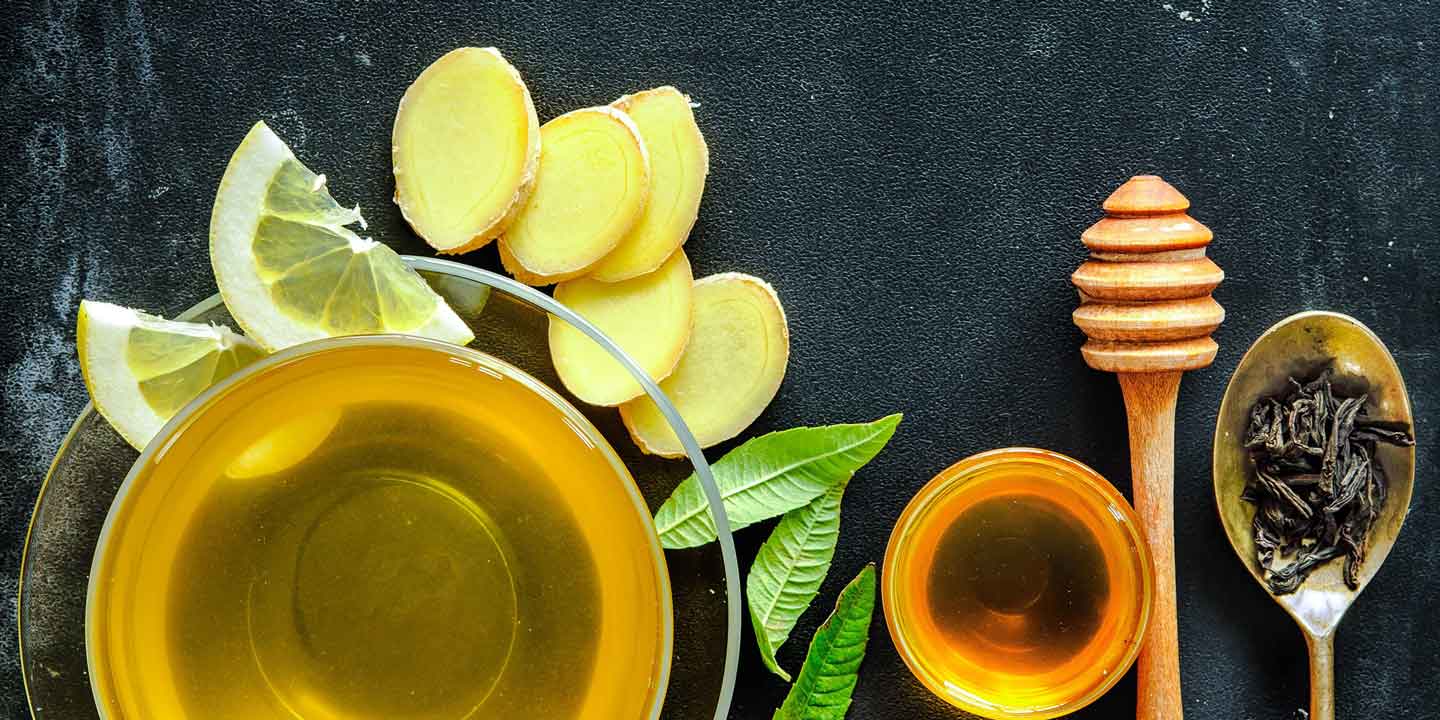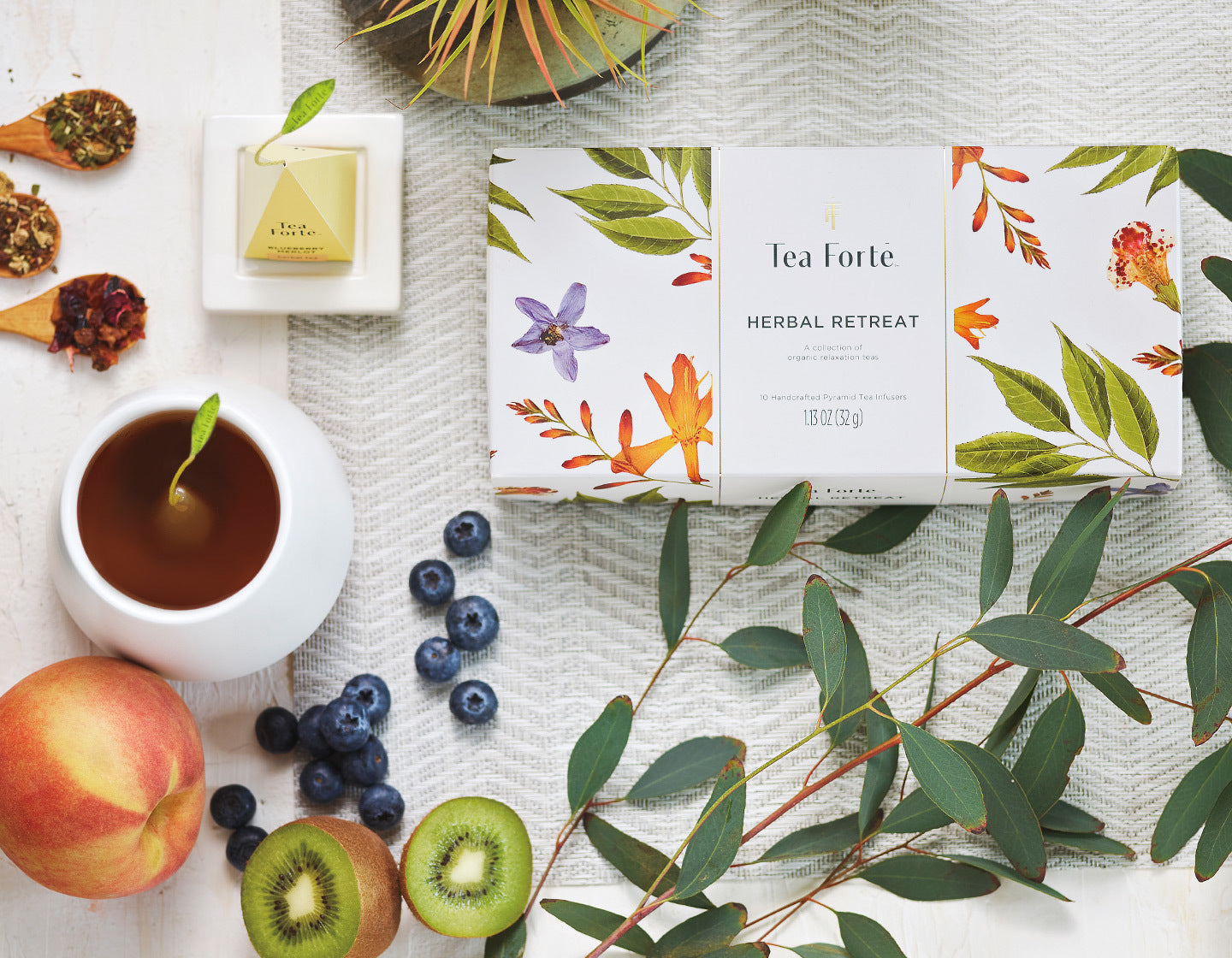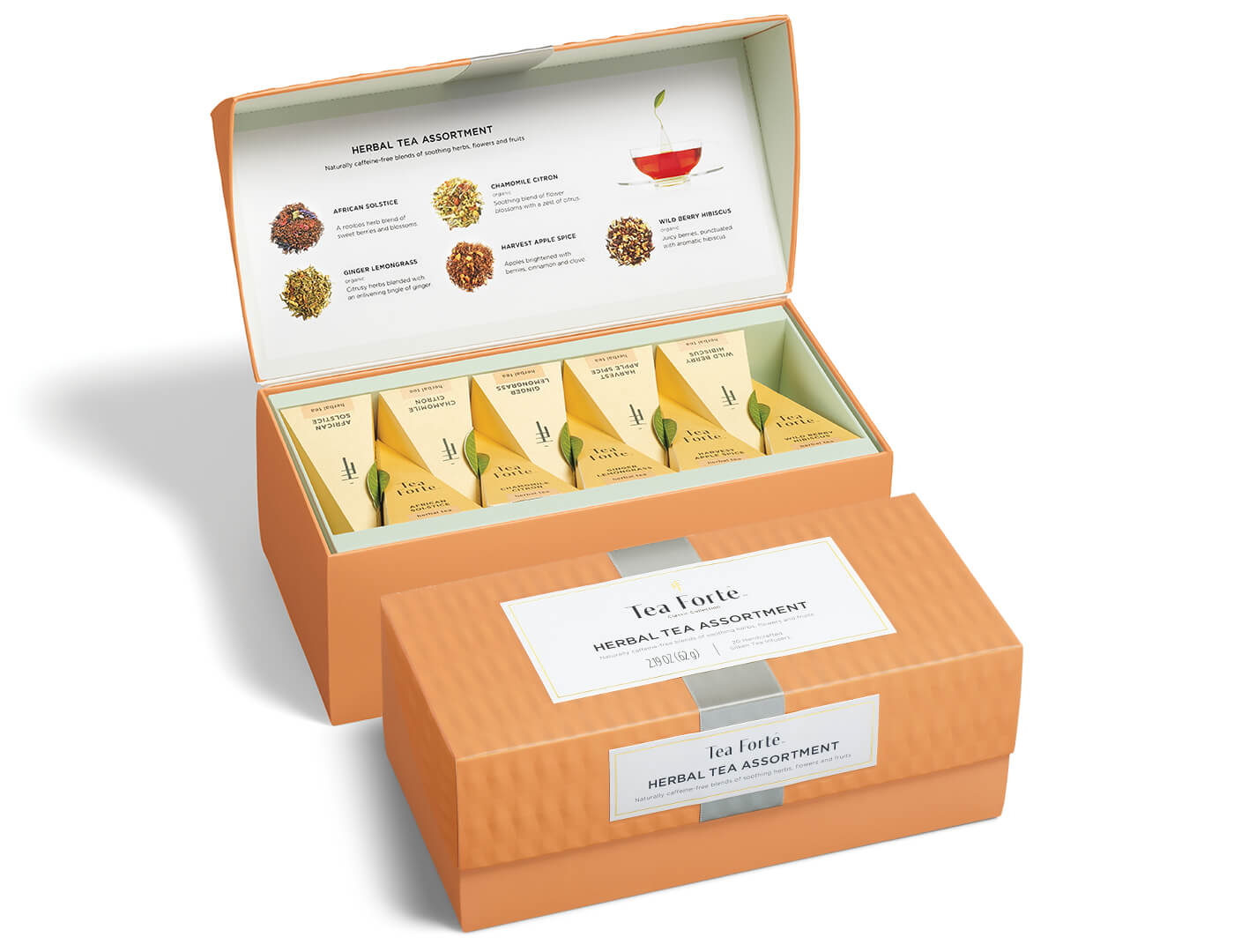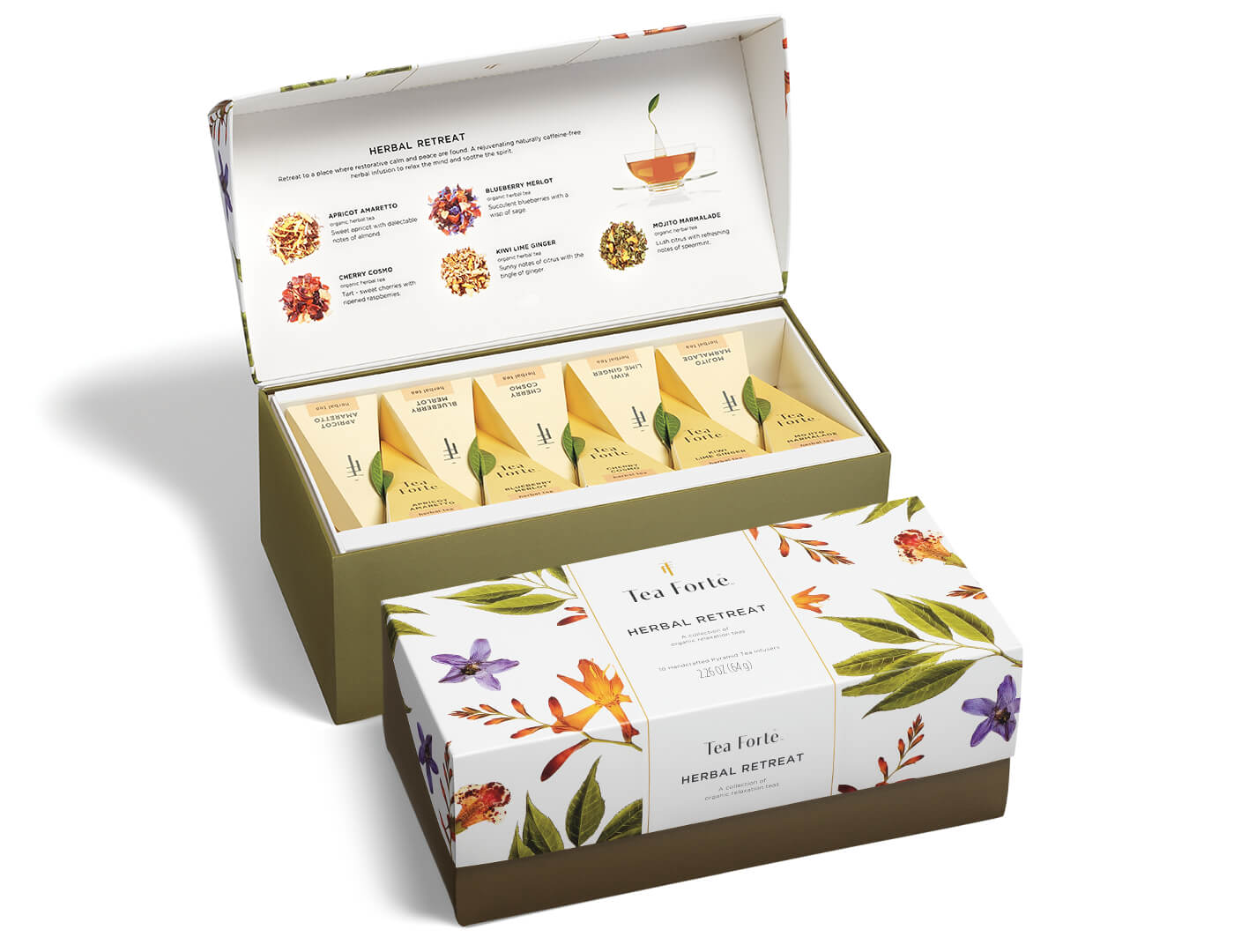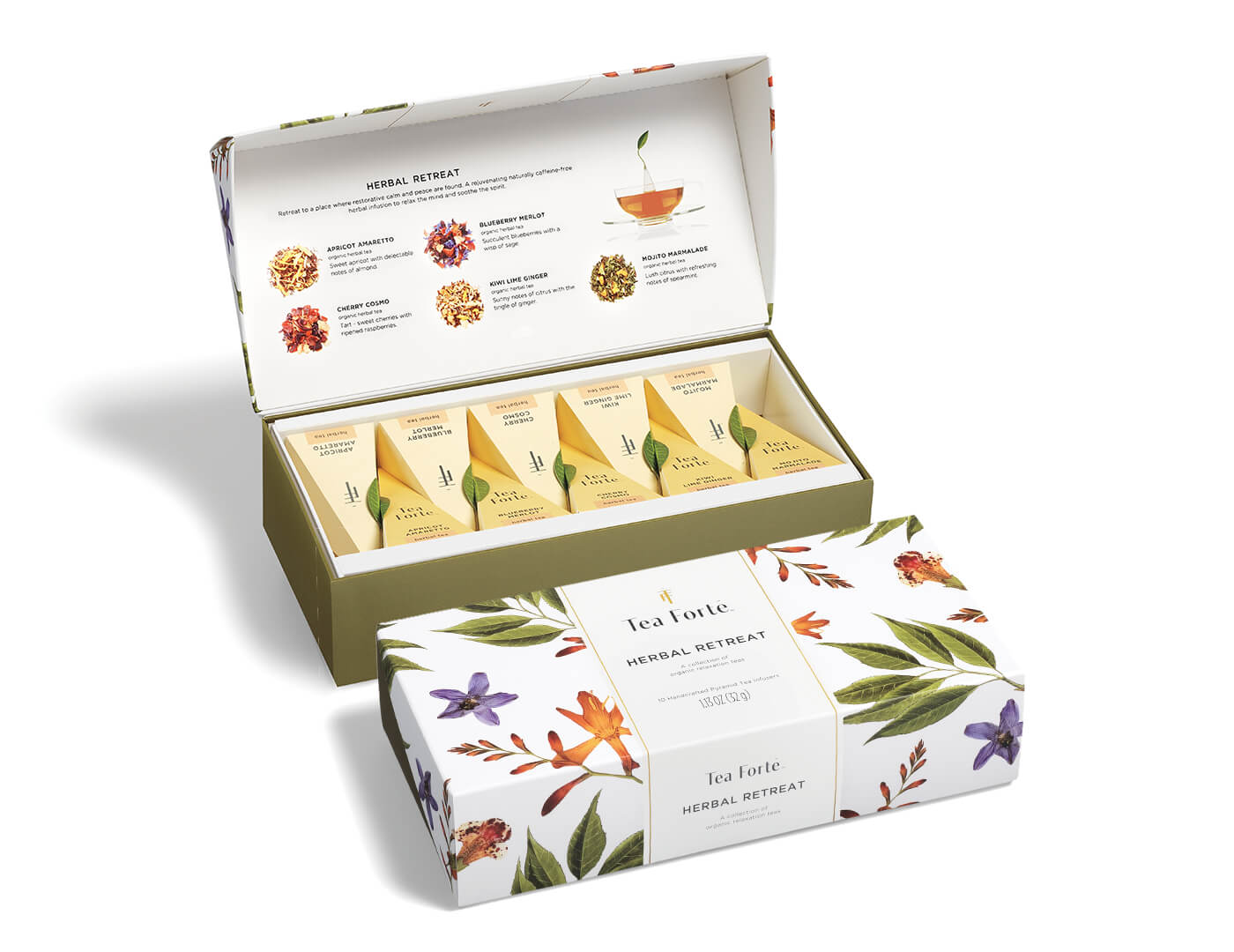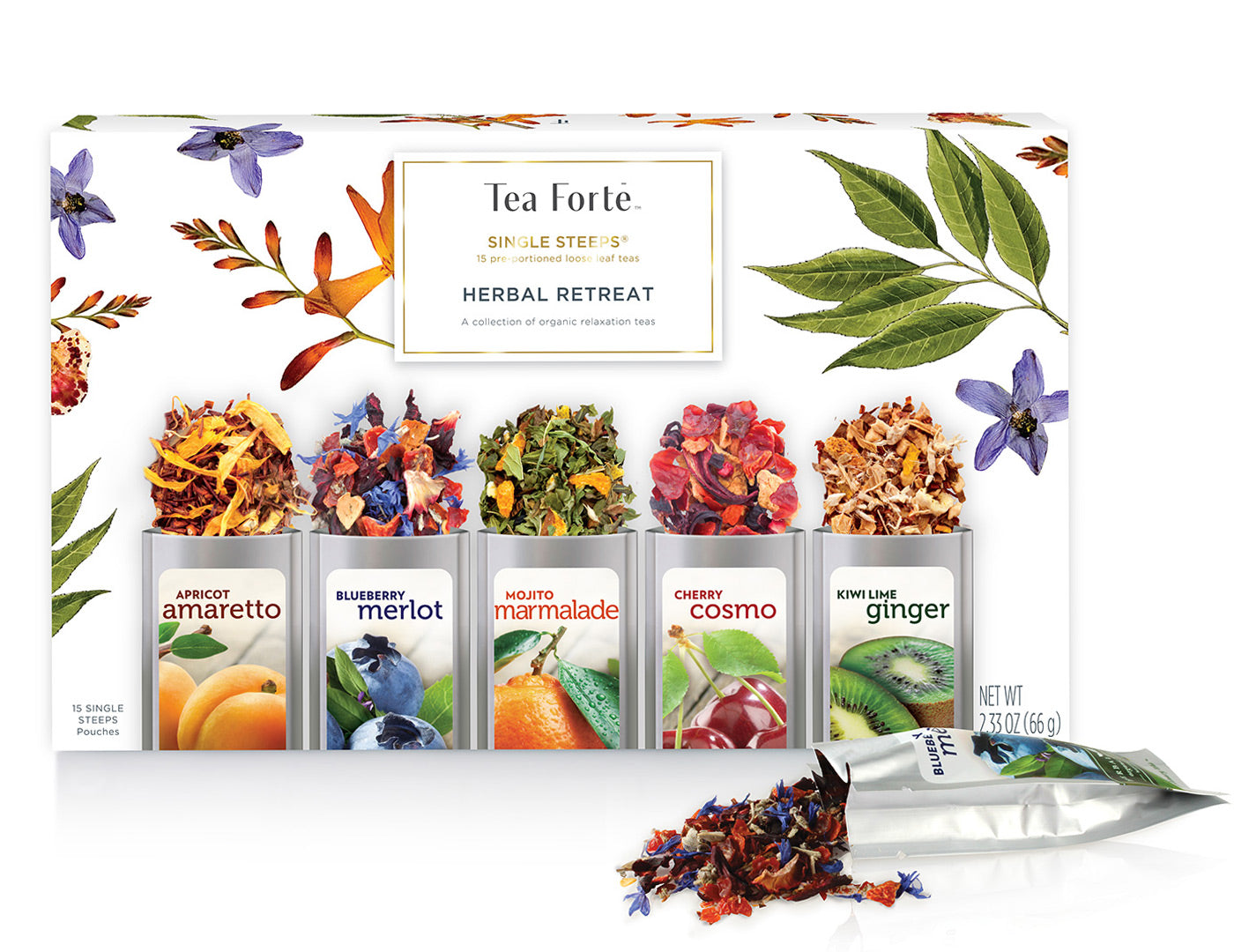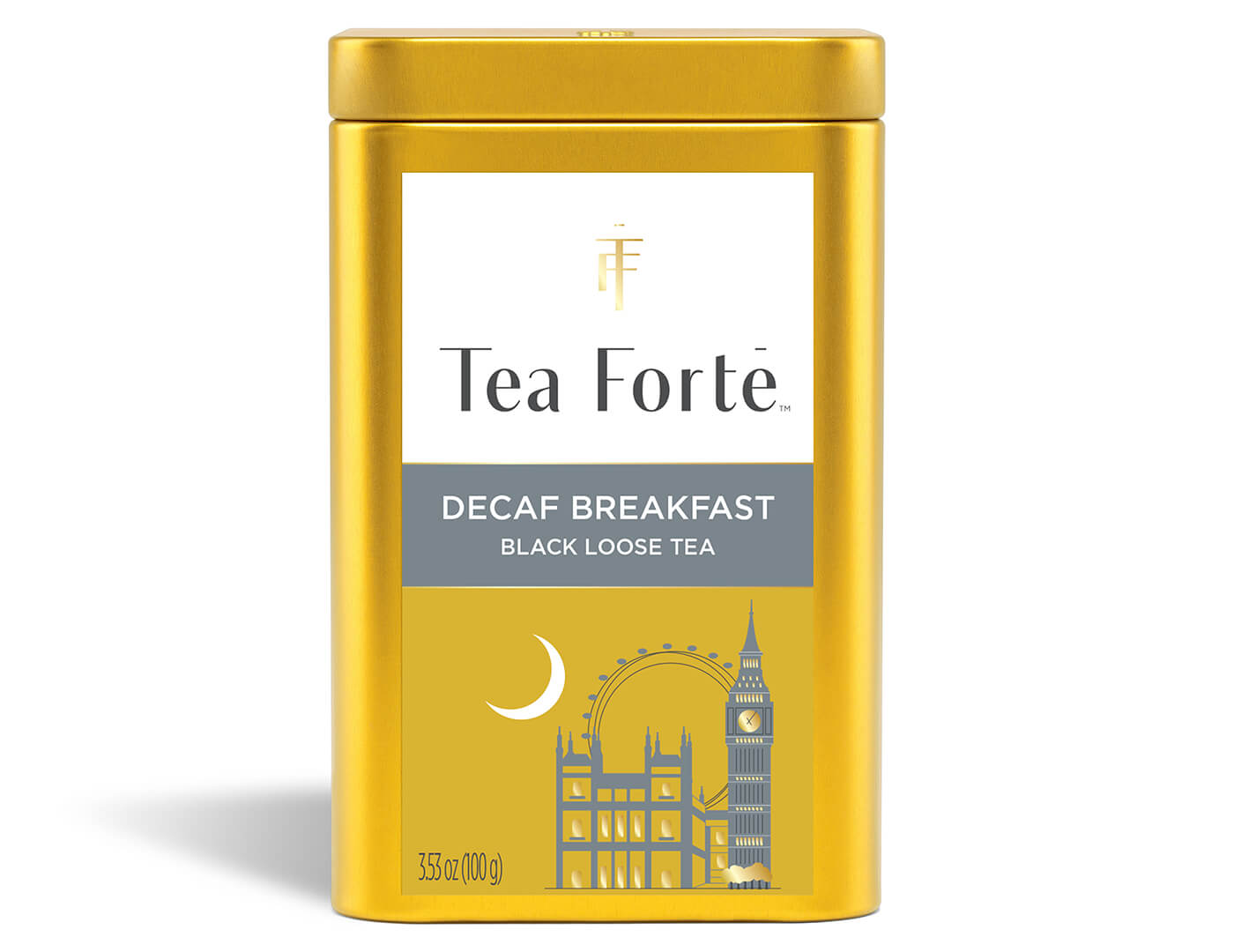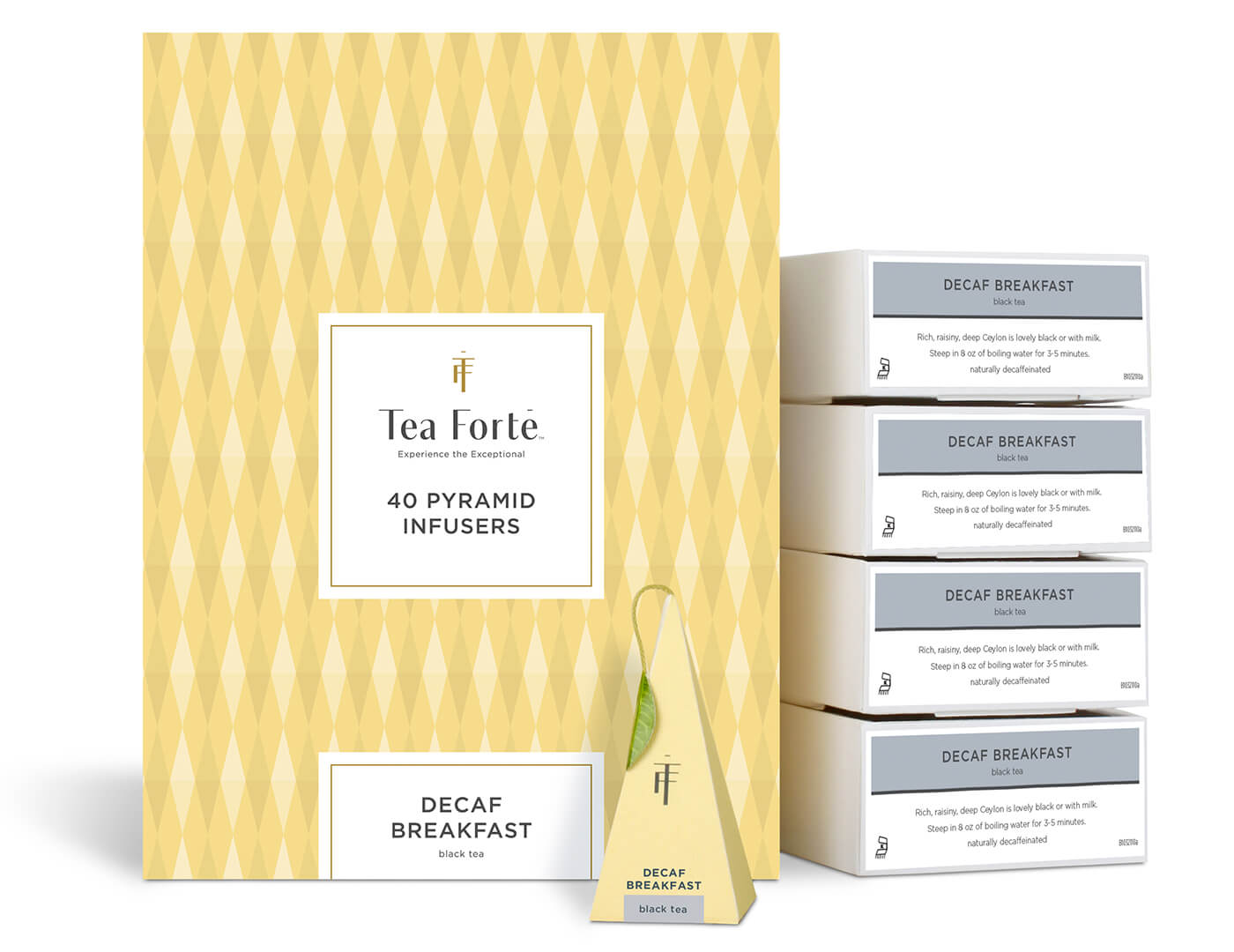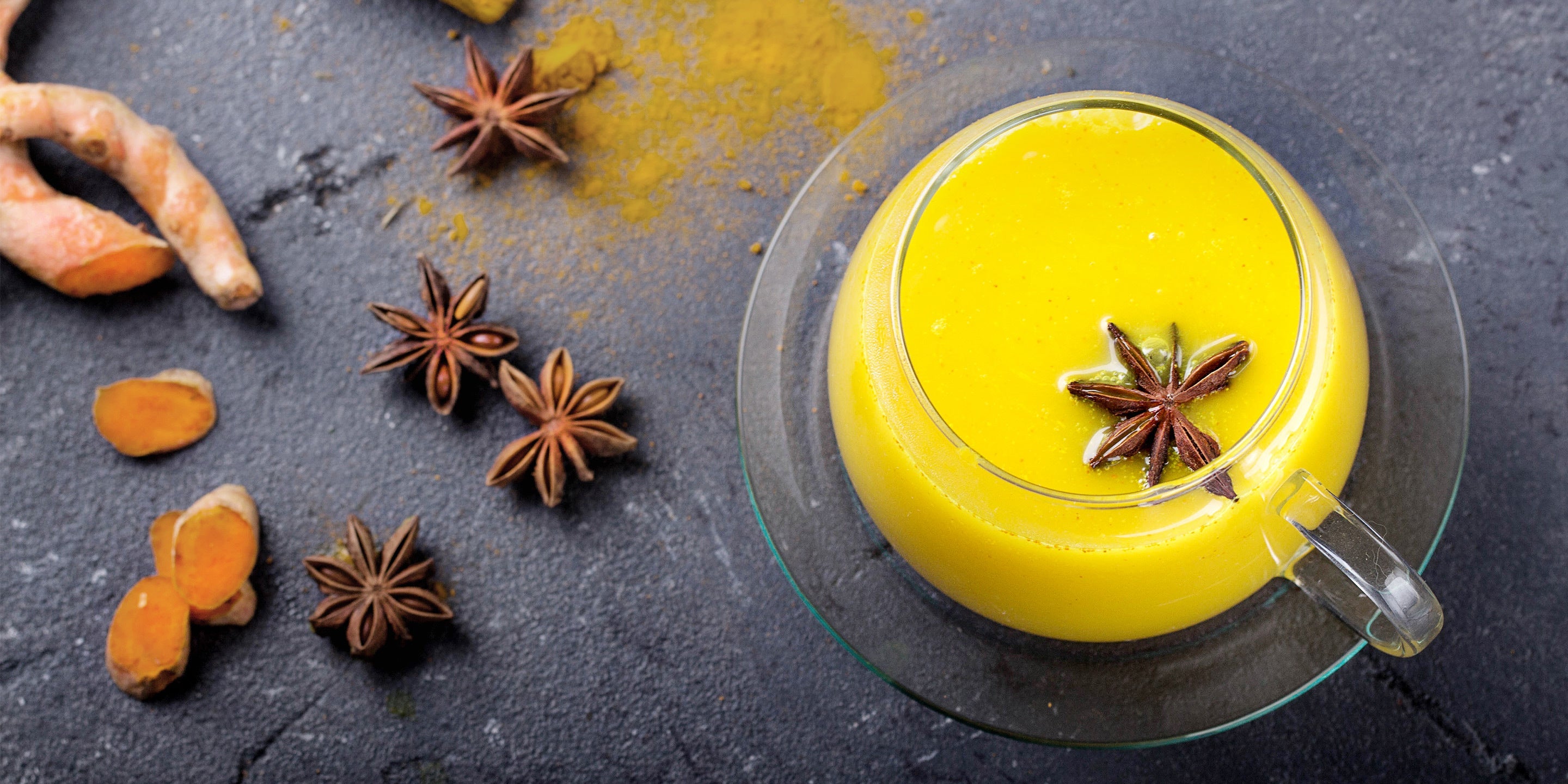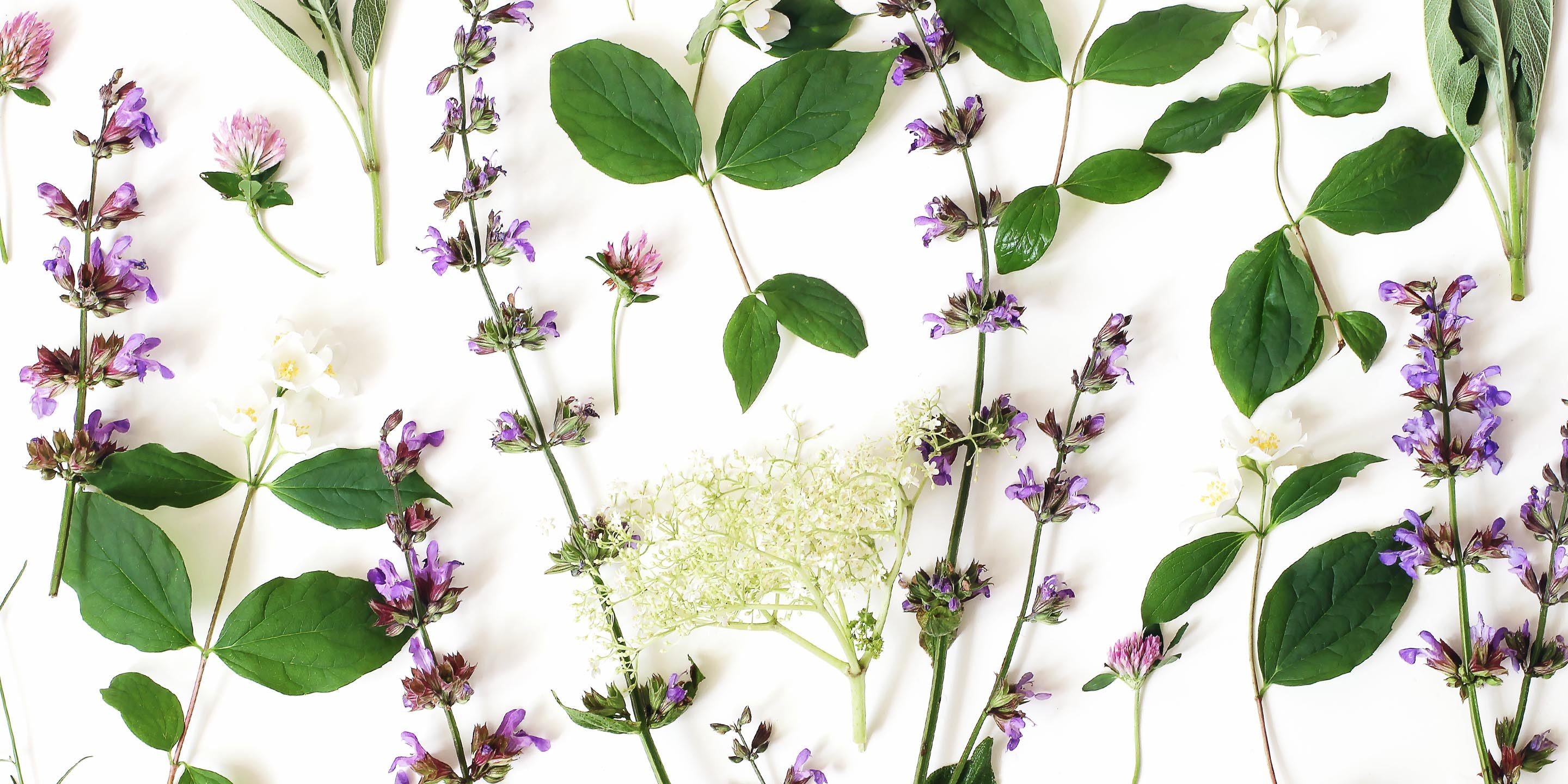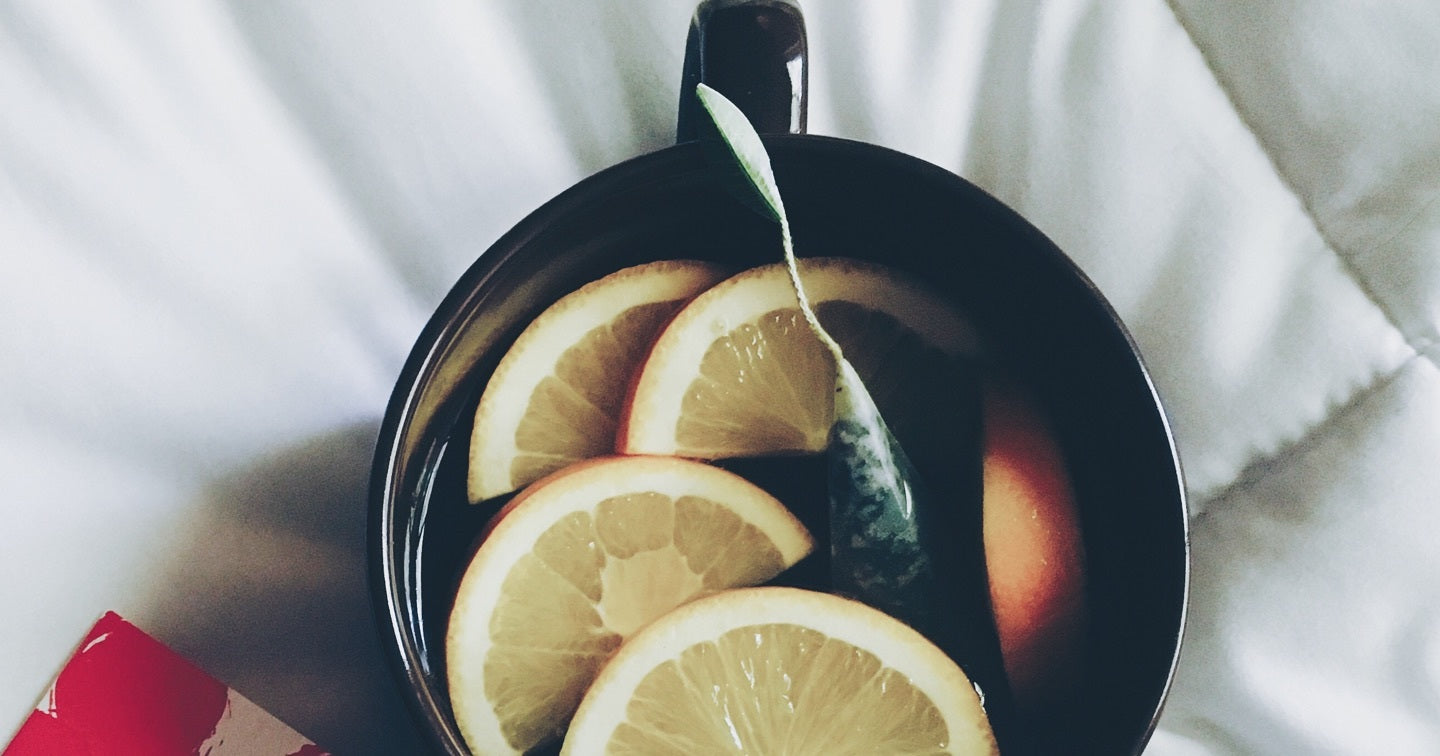With so many delicious types of tea to choose from, it’s easy to feel overwhelmed in the search for the perfect cup. For caffeine-sensitive tea drinkers, distinctions like “caffeine-free” and “decaffeinated” can be confusing since they sound like synonyms but technically mean different things. And as black, green, white, oolong, and herbal varieties are broken down into even smaller subcategories based on the way each blend is harvested, processed, and combined with additional flavor notes, it can be difficult to tell what’s what. So, to help tea enthusiasts understand the difference between herbal and decaf tea, as well as a few other distinctions, we’ve got all the facts right here.
IS HERBAL TEA DECAFFEINATED?
Generally speaking, most herbal teas, or more specifically "herbal tisanes", naturally have no caffeine, and therefore are not decaffeinated. Actually, herbal tisanes are not made from the tea plant at all, but are comprised of herbs, roots, seeds, fruits, botanicals and flowers – anything but actual tea leaves. The name herbal tisane may seem overly precise, but it’s the best name for a reason: tea leaves naturally contain caffeine, while tisanes naturally do not. Still, in popular culture, “herbal tea” is the most popular way to describe tea-like beverages that are naturally free of caffeine.
And then you have tea. For a beverage to be considered “tea” from a purist’s perspective, it must be made from the leaves of tea, the camellia sinensis plant, which naturally contains caffeine. The leaves are then plucked, steamed, rolled, pan fried, withered and/or dried into the many different variations of tea types we know, including black, green, white, and oolong tea.
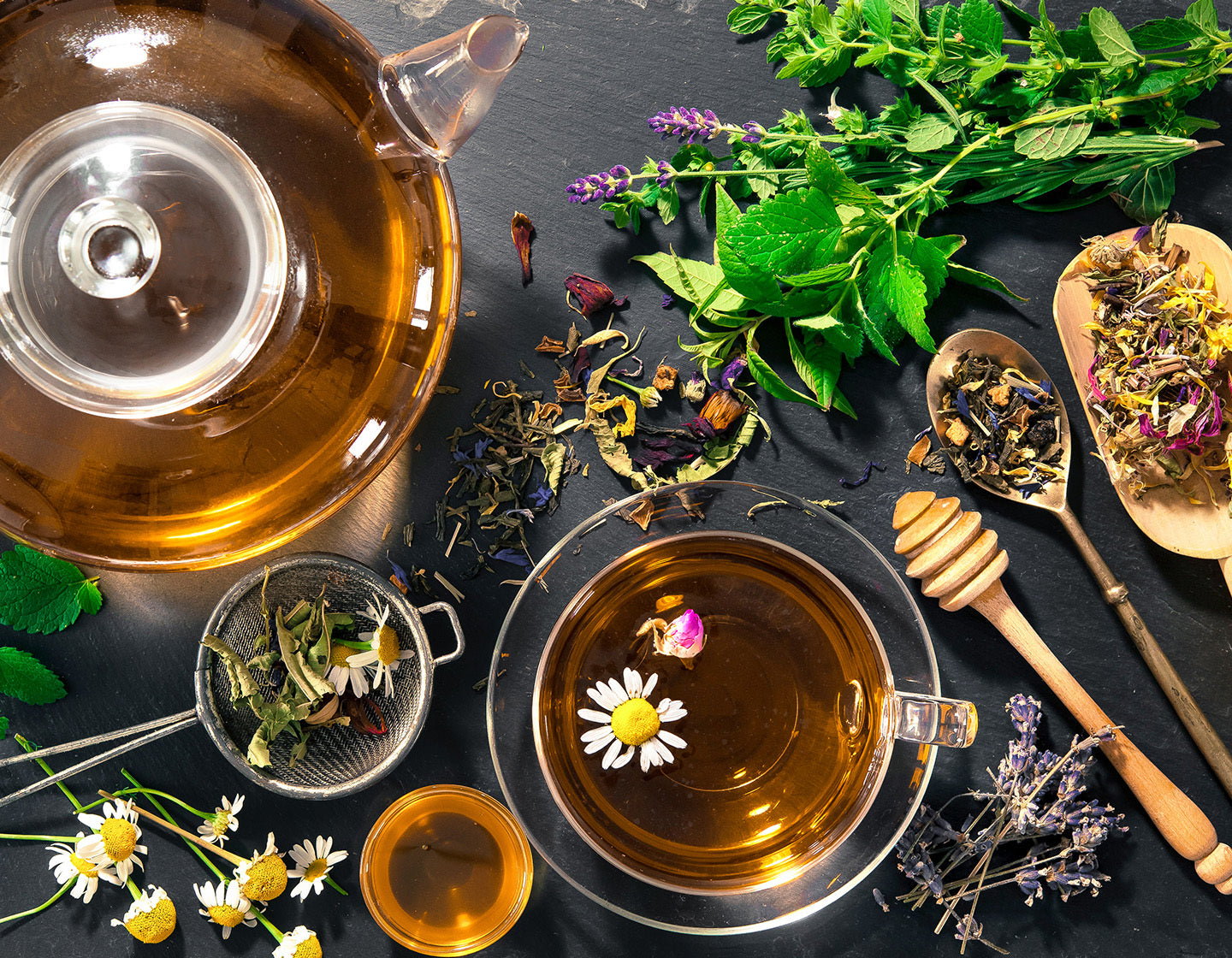
So, if you’re enjoying a cup of tea, it either contains caffeine or has been decaffeinated by a tea producer after harvesting the leaves. If you’re drinking an herbal tisane (or “herbal tea”), then you’re most likely enjoying a naturally caffeine-free beverage.
Of course - there are exceptions! Please note that some "herbal teas" may naturally contain tiny amounts of caffeine, as some herbal ingredients contain trace amounts of caffeine naturally, such as cacao shells, cacao husk and yerba maté. The amount of caffeine in such cases is generally quite minimal, but it's worth mentioning for awareness.
CAFFEINE-FREE VS. DECAF TEA
For those curious about the difference between the terms “caffeine-free” and “decaffeinated” (or “decaf” for short), there’s a slight distinction to be made.
The phrase “caffeine-free” refers to the ingredients, which are unrelated to tea made from the camellia sinensis plant, and it means what it says: a caffeine-free tisane is, indeed, free of caffeine. So, herbal blends comprised only of fruits, flowers, herbs and spices like Wild Berry Hibiscus, Chamomile Citron, and Winter Chai, are naturally caffeine-free.
The Herbal Retreat collection is naturally caffeine-free, as it's flavor comes from fruit, flowers, herbs & spices (and no tea leaves).
The word “decaffeinated,” on the other hand, refers to tea leaves that once contained the natural stimulant but underwent a process to remove it almost entirely. This means that decaf teas may still contain trace amounts of caffeine, although it’s usually not enough to affect the heart rate or energy level of someone who isn’t highly sensitive to it. To be called “decaf” or "decaffeinated,” a tea blend’s caffeine content must have been reduced to 2.5% of its original level or less, which usually amounts to about 2 mg. For reference, it’s considered healthy for the average person to consume up to 400 mg of caffeine per day.

Our Decaf Breakfast tea is a decaffeinated black tea with classic flavor of English Breakfast, but without the caffeine.
HOW IS TEA DECAFFEINATED?
While herbal blends naturally contain no caffeine, many tea enthusiasts desire decaffeinated black, green, white, or oolong tea. To produce decaffeinated tea, a production process is carried out using water, carbon dioxide or organic solvents before tea leaves are packaged and presented to the consumer. So, if you’re preparing a cup of decaf black tea, for example, that tea has undergone a decaffeination process somewhere between its harvest and its arrival in your cup. While there may still be a very small amount of caffeine in each serving, however the amount is minimal.
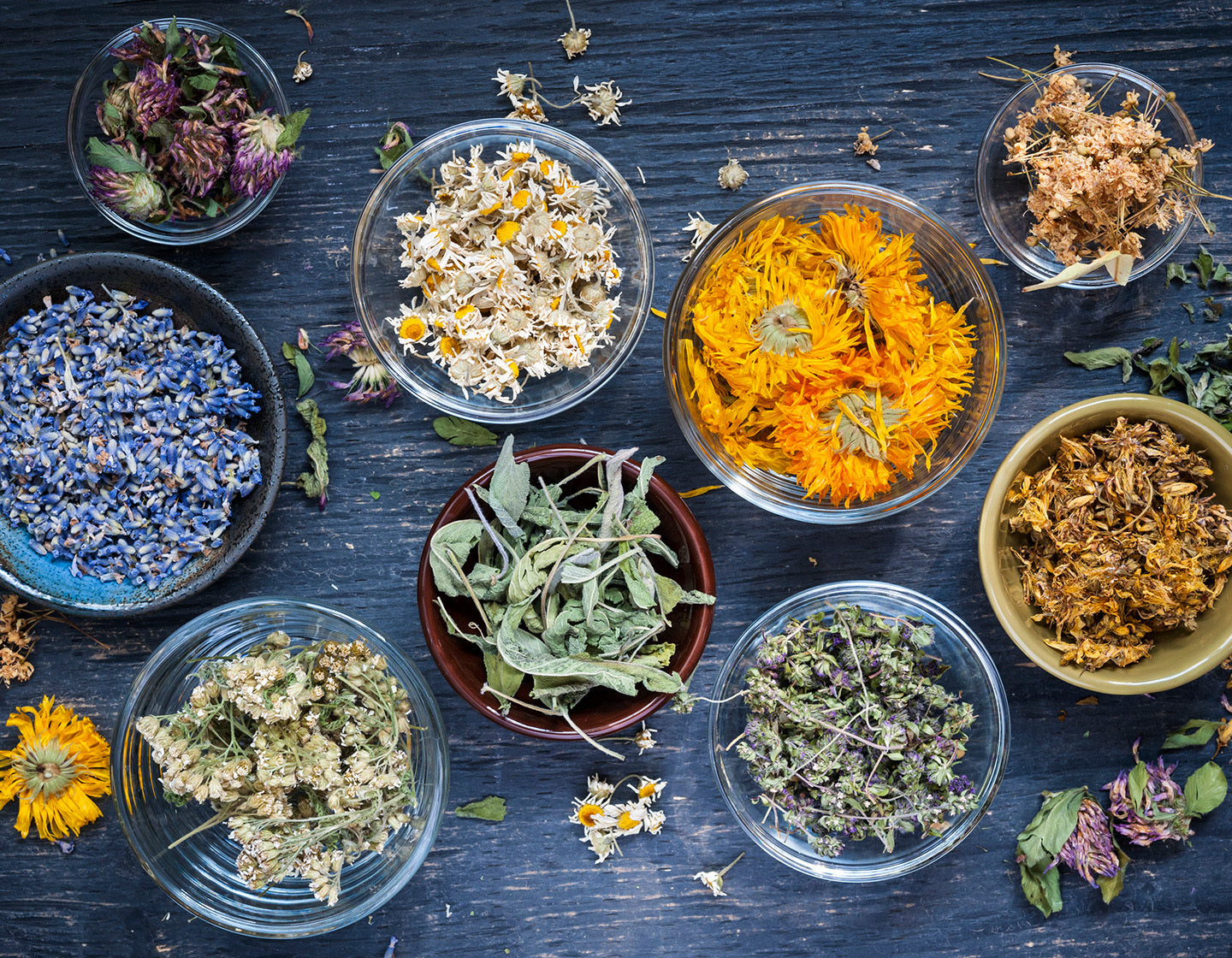
To enjoy a sampling of Tea Forté’s finest caffeine-free offerings, explore our herbal blends, offering an expansive array of flavors, colors, aromas and more.
Petite Presentation Box Herbal Tea Assortment
Save 15% at checkout
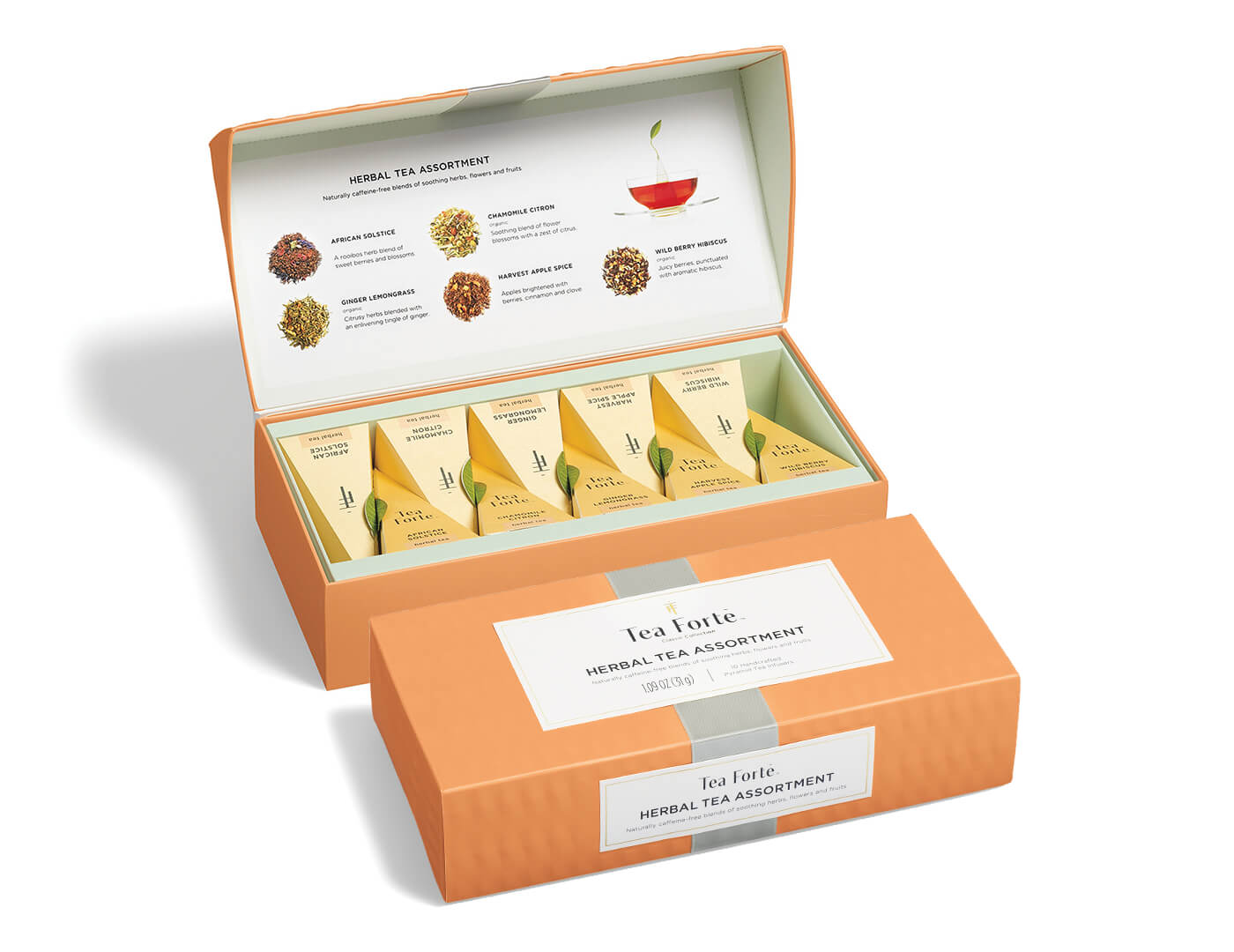
Single Steeps® Tea Chest Herbal Tea Assortment
Save 15% at checkout

